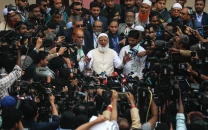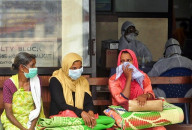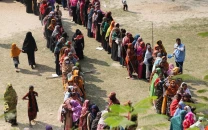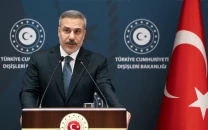Foreign policy: a case of increasing isolation?
Despite years of this building narrative on Pakistan, have we really attempted to address it? Answer is in negative

Perhaps, the greatest test of our foreign policy has emerged in the aftermath of a successful visit of the Indian prime minister to Washington, where his past was forgotten by the same country that denied him a visa for more than a decade. The two countries indicated that they may cooperate for stability in Afghanistan, and at the end of Narendra Modi’s visit, a joint US-India statement has even more worrying signals. Both India and the US cited working on “joint and concerted efforts, including the dismantling of safe havens for terrorist and criminal networks, to disrupt all financial and tactical support for networks such as al Qaeda, Lashkar-e-Taiba (LeT), Jaish-e-Mohammad, the D-Company and the Haqqanis”. The Indian and US authorities also jointly reminded “Pakistan to bring the perpetrators of the November 2008 terrorist attack in Mumbai to justice”. Consequently, the US government made public sanctions against Pakistani militant leaders and two Pakistan-based organisations for their alleged support or linkages with Kashmir jihad groups such as the LeT and the Harkatul Mujahideen.
For decades, we have been banking on the Americans to intervene in the Kashmir issue, a ‘core’ problem as we see it in Indo-Pakistan bilateral relations. We have not been able to succeed in this. In fact, things are turning the other way round. India has been keen for a long time to convince the world, including the US, about Pakistan’s so-called ‘terror problem’. That they do this is not surprising. But the fact that we create a space for this global narrative is far more problematic. Despite years of this building narrative on Pakistan, have we really attempted to address it? The answer is in the negative.
The most recent evidence of our flawed approach to militancy at home can be traced in the Foreign Office’s reaction on October 2. The otherwise sensible spokesperson for the Foreign Office declared that the US decision to impose sanctions was not “binding” on Pakistan. The problem with such an approach is that it undermines the recent policy shifts in fighting anti-Pakistan militants and the huge sacrifices that Pakistanis, including security personnel, have made. More alarmingly, the joint statement issued by India and the US also mentions “dismantling” terrorist safe havens. What does this mean? Rhetoric or even a remote chance that they might get together to act against the ‘threat’ in Pakistan? True, that Pakistan’s nuclear capability and strong defence architecture are likely to prevent such misadventure(s), but that a policy option is emerging should be a wake-up call for the key actors here.
Why are the Kashmir jihad organisations given so much space in the political arena and in the media? Why are important national days marked by rallies by these organisations? In the region, we look more and more isolated. Pakistan entered into a pipeline deal with Iran and faces the prospect of paying penalties if our part of the commitment is not fulfilled. Given the acute energy crisis, our options are limited, but it is unclear if that pipeline will materialise. Often Saudi and American pressures are cited as reasons for our vacillation. But this is not how responsible states function.
The Afghan public opinion is far from favourable when it comes to Pakistan. For some real and some imagined reasons, Pakistan is viewed by many Afghans as the problem. The onus to change this perception is on us. On the one hand, we support the new political deal in Afghanistan and on the other, when Punjabi Taliban say that they will stop fighting us and focus on Afghanistan, we welcome that? Are we not providing an excuse to Afghan intelligence to patronise the TTP?
Handling India has become even more problematic. Prime Minister Modi disappointed many in Pakistan (and even India) by cancelling the August talks between the foreign secretaries. Such display of hardline attitude was not unexpected from a leader who is viewed and wants to act as the strongman in the region. Prime Minister Sharif, in his recent UN address, returned to the ‘plebiscite in Kashmir’ policy, which basically entails a negation of the modest progress that took place in recent years. It may take a long time to rebuild trust and further the trade talks.
The Americans are withdrawing from the region and Afghanistan’s stabilisation is a question mark. Pakistan will suffer if there is instability and violence next door. The prospect of a proxy war with India on Afghan soil is even worse. Pakistan desperately needs energy supplies and more trade in the region to boost its economy. Regional instability will further exacerbate the chances of economic recovery and the bailouts from the West may dwindle with the drawdown in Afghanistan.
Civil-military relations appear to be strained precisely when consensus at home is badly needed. What is certain is that business-as-usual is not going to work. Aside from the military’s overt role, the civilian government appears to be a house divided on foreign policy issues. When multiple principals are engaged in the conduct of foreign policy, the credibility of the country plummets in the international community. The policy elite need to fix the ongoing domestic crisis and respond to a rapidly changing regional situation.
Published in The Express Tribune, October 5th, 2014.
Like Opinion & Editorial on Facebook, follow @ETOpEd on Twitter to receive all updates on all our daily pieces.



















COMMENTS
Comments are moderated and generally will be posted if they are on-topic and not abusive.
For more information, please see our Comments FAQ